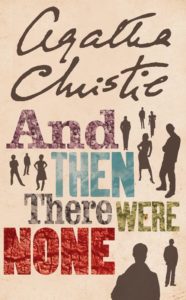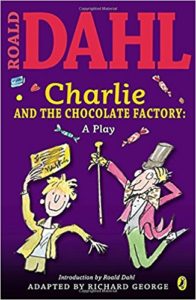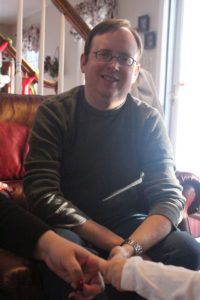book recs
Foundational Reading: 10 Books That Stayed with You Over Time
I take something away from almost every book I read, but some have become part of my DNA. Here, in no particular order, are ten books that have changed how I think about life in some way.
The Gift of Fear, Gavin DeBecker
DeBecker does threat evaluation and security for celebrities and rich people, but his advice is valuable for everyone, especially women. If you think you’re in danger, you probably are, and you should listen to that voice telling you to get the hell out of there.
A Girl Named Zippy, by Haven Kimmel
This delightful memoir made me laugh so hard I cried, when it wasn’t alternating with breaking my heart. It’s a beautiful lesson in voice and storytelling.

And Then There Were None, Agatha Christie
A masterwork in misdirection from one of the finest in the biz. I couldn’t believe it when this was assigned reading for one of my high-school classes. It was an acknowledgment that entertaining books could be worthy of serious study too!
The God of Small Things, Arundhati Roy
A transporting tale that’s not about small things at all; it’s about family and identity and the death of dreams, all in such evocative language that I could smell each scene.
Ladykiller, Ed McBain
This fast-moving story takes place in one day, in which the detectives of the 87th Precinct receive a message that says, “I will kill The Lady tonight at eight. What can you do about it?” McBain’s mysteries always have really satisfying answers, and this one is one of the best.
The Stranger Beside Me, Ann Rule
You could not make this story up and be believed. A true-crime writer gets assigned to do a book on an ongoing series of murders, only to discover the culprit is her friend Ted. Ted Bundy is an archetypal serial killer at this point, and Rule provides one of the most intimate portraits of the man. I get something new from this book each time I read it.

Charlie and the Chocolate Factory, Roald Dahl
This book was one of my first loves. I think I read it twenty times in fourth grade alone, and not just because it has chocolate in the title. I loved the imagination of the Chocolate Factory and crazy Mr. Wonka, but I think I loved the part where the nasty, self-absorbed kids got what was coming to them even more. Fiction—the only place where one can truly get what one deserves.
The Sound and the Fury, William Faulkner
I needed to buy a Cliff Notes explainer to help me understand this novel the first time I read it, but after I caught on, I was blown away by the way the story of the family is interwoven through the various voices of its members.
Consciousness Explained, Daniel Dennett
What an audacious title! Here is one of the greatest mysteries of the universe—where did consciousness come from? Dennett gives it his best educated guess in this highly readable philosophical tour-de-force.
To Kill a Mockingbird, Harper Lee
This was another revelation assigned school reading did not have to be about torturous subjects that a fourteen-year-old girl could not relate to on any level. I grew up in an entirely white environment, and this book was one of my first exposures to the idea that America’s racial history is painful and ugly. Scout’s narration made that accessible to me at the time. These days, I try to get my stories about USA race relations from authors of color, but To Kill a Mockingbird was an initial shove in the right direction.
I always need recommendations for new books to read! What’s a book that has stayed with you over time?





